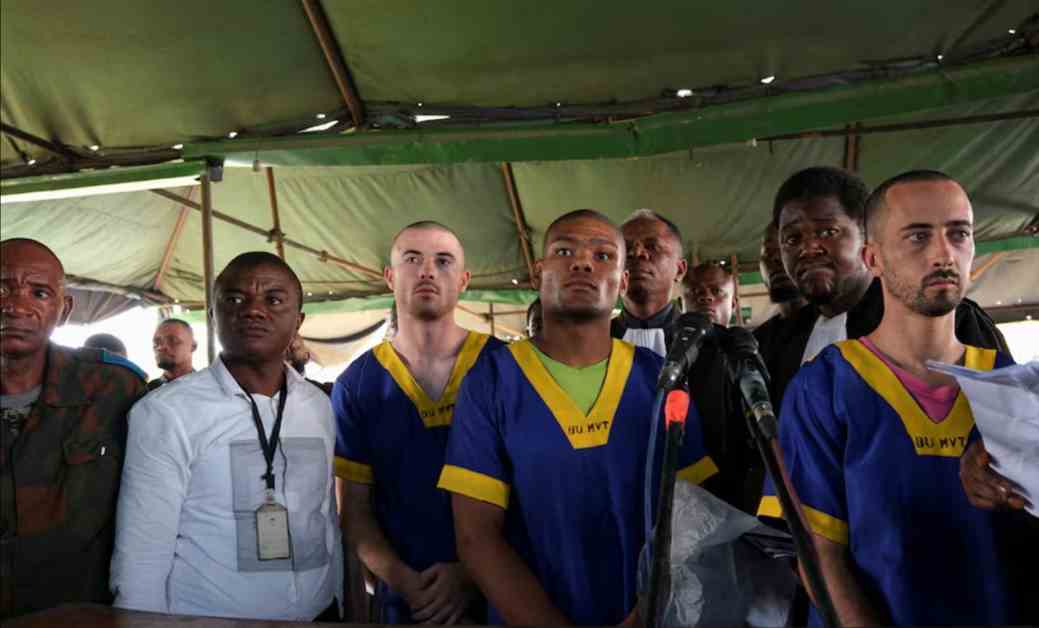The trial of over 50 defendants, including six individuals with US, British, Canadian, and Belgian citizenship, began in Congo on Friday. They are accused of involvement in a failed coup attempt on May 19, led by US-based Congolese politician Christian Malanga. The group of armed men briefly took over a presidency office in Kinshasa before Malanga was killed in a confrontation with security forces. Among the suspects are Malanga’s son, Marcel Malanga, two other US citizens, and individuals with Canadian, British, and Belgian citizenships. They face charges of illegal arms possession, criminal conspiracy, and terrorism. Despite their diverse nationalities, all of the defendants have Congolese roots and could potentially receive harsh punishments if found guilty, such as lengthy prison sentences or death.
During the court appearance, the defendants were charged but not allowed to enter pleas. Richard Bondo, a lawyer representing one of the US detainees, emphasized that they are presumed innocent and stated that it was premature to discuss extradition at this stage. The case has attracted significant attention due to the involvement of individuals from various Western countries in the attempted coup. The trial is expected to shed light on the circumstances surrounding the coup plot and the extent of foreign involvement. It also raises questions about the role of diaspora communities in conflicts within their countries of origin.
The trial proceedings are likely to be complex and lengthy, as the defendants prepare their defense and the prosecution presents its evidence. The legal implications of the case extend beyond Congo, as it involves multiple foreign nationals and potential extradition requests. The outcome of the trial could have diplomatic repercussions depending on the verdict and sentencing of the defendants. It also highlights the challenges of addressing political instability and violence in the region, particularly when it involves individuals with ties to other countries.
As the trial continues, the international community will be closely monitoring the proceedings and the fairness of the legal process. The case serves as a reminder of the interconnectedness of global events and the need for cooperation in addressing security threats that transcend national borders. The implications of the coup attempt and the subsequent trial extend beyond Congo, impacting relations between the countries involved and raising questions about the motivations behind the alleged plot.





















